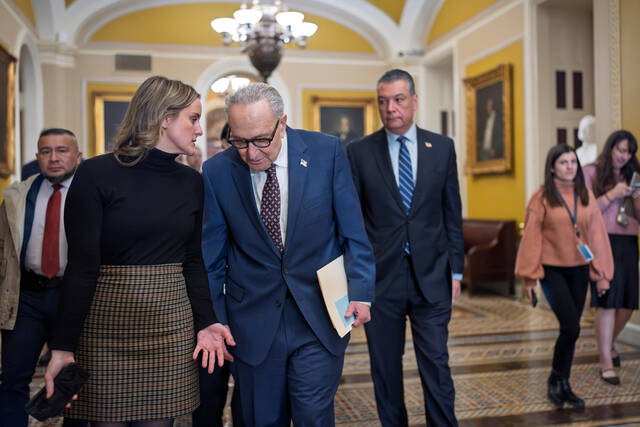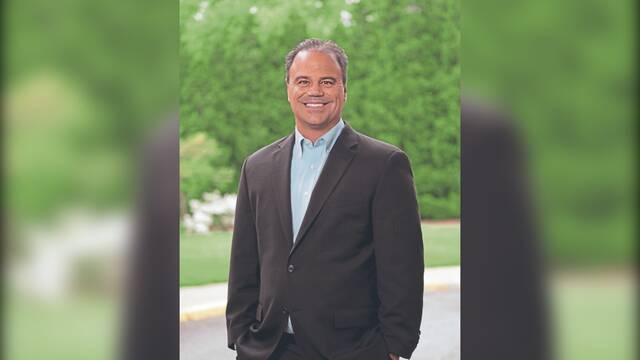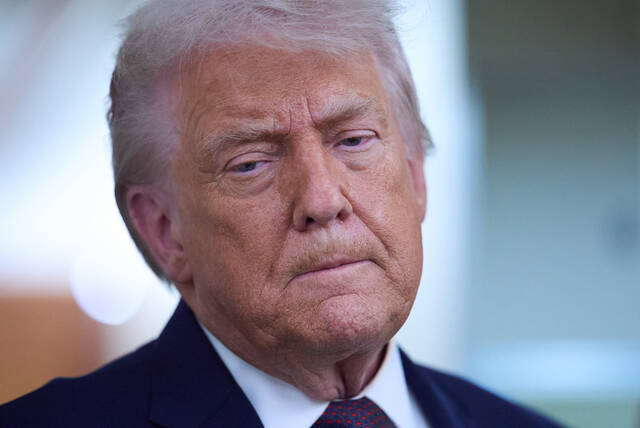If past is prologue, a proposal from U.S. Sen. Pat Toomey, R-Lehigh Valley, and former Pennsylvania Gov. Ed Rendell seeking 34 states to force a Constitutional Convention to consider congressional term limits may be as unlikely as the partners who put out the call for it Tuesday.
Just one day after Toomey, a courtly, soft-spoken Republican fiscal conservative, announced he would not seek a third term in the Senate or run for governor in 2022, he and Rendell — a brash, outspoken Democrat and former big-city mayor who served two terms in the governor’s office — issued a joint statement supporting a constitutional amendment to establish congressional term limits.
Then, in an opinion piece first published in the Philadelphia Inquirer, they went one step further and described a pathway to force consideration of a measure they conceded would never get through Congress on its own.
Their suggestion: that Pennsylvania and 33 other states file resolutions seeking a limited Constitutional Convention to consider congressional term limits.
Although the Constitution has been amended repeatedly through Congress, it has never been changed through the alternative state method outlined in the Constitution.
Toomey, who will be leaving Congress after three terms in the U.S. House and two in the Senate, has long supported term limits. He previously co-sponsored an unsuccessful bill in 2015 to limit congressional service to three terms in the House and two in the Senate.
Rendell and Toomey said they share many of the same frustrations with an entrenched Congress and seek to solve problems through government.
“To that end, we believe the time has come for big, structural change in how Washington, D.C., does business. Congressional term limits, more than any other change, would do a world of good to restore the trust many people have lost in our leaders,” they wrote.
“We aren’t alone in feeling this way,” Toomey and Rendell continued. “A 2020 poll showed that four in every five Pennsylvania voters — regardless of party affiliation — favor term limits on members of Congress.”
Former Illinois Gov. Pat Quinn, a Democrat who served from 2009-15, offered similar sentiments when he penned a column for The Hill in August endorsing congressional term limits.
Quinn said term limits would deliver a more balanced and accessible Congress and end the huge fundraising advantages that help incumbents return to Washington time after time.
“They stop incumbents from growing too unbeatable and keep Congress from becoming an aristocracy,” Quinn wrote.
Joseph DiSarro, chairman of the political science department at Washington & Jefferson College, could recall only one time any measure came close to forcing a Constitutional Convention through the state pathway. Sen. Everett Dirksen, a powerful Illinois Republican, encouraged an effort in 1964 to consider the so-called Dirksen Amendment.
Dirksen sought to overturn a Supreme Court decision that forced states to adhere to the one man-one vote standard when reapportioning all state legislative districts. The campaign eventually landed support from 33 states, one state short of the 34 needed to force a convention, DiSarro said.
DiSarro agreed with the call for term limits. He said it could well improve Congress and return the legislative branch to the kind of citizen-legislators the framers imagined.
But he said it’s unlikely the Toomey-Rendell proposal carries the kind of weight that would be necessary to push their plan to fruition.








